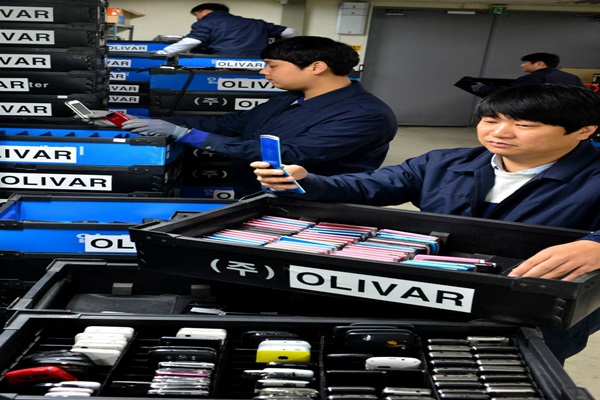Developing Countries Want Strict Regulations Based on Basel Convention
International societies are out to ‘suffocate’ used phones. A possibility of not being able to export all used phones starting from 2017 at the earliest has been brought up and it will have huge impact on all of South Korea’s mobile telecommunication industries such as manufacturing, distribution, and others.
According to Ministry of Environment, Ministry of Foreign Affairs, and mobile telecommunication industries on the 25th, United Nations Environment Program (UNEP) is examining whether or not used phones are hazardous materials according to Basel Convention. Opinions between membered countries will be mediated at next year’s officials meeting, and final decision will be made at 2017 General Assembly for countries that are directly involved.
Main issue is on whether or not used phones are hazardous materials. Developing countries such as Africa and others want strict regulations by saying that used phones cause environmental pollution and see used phones as hazardous materials like radioactive matter. On the other hand, South Korea and others see used phones as just electronic products. However problem lies on a fact that developing countries have strong say in Basel Convention because 77 groups (convention of developing countries) lead it unlike other international conventions that are usually led by advanced countries.
“Most of 180 members of Basel Convention are developing countries. Negotiation is not easy as developing countries have strong say.” said a person affiliated with Ministry of Environment.

Basel Convention regulates ‘trade between countries on hazardous materials’. Trades are greatly limited if a product is considered as a hazardous material and they can even be stopped in worst case scenario. Industries are estimating that there is a maximum of 10 million used phones including supplies that are not part of official statistics that are being exported per year. Even if exports might be allowed, it is highly likely that they will reinforce regulations.
“Significant damage is expected if used phones are considered as hazardous materials because exports will not be easy.” said a person from a used phone distributor. “If South Korea’s quantity of used phones’ distribution increases, it will also affect manufacturers and mobile telecommunication businesses.”
South Korean Government has started preparing countermeasures. It collected opinions from phone manufacturers last year and submitted opinions from used phone distributors to Basel Convention’s executive office. In early 2016, it will make a task force, which is participated by South Korean Government and industries, to minimize standards of hazardous materials as much as possible. “We are going to prepare plans at an officials meeting before General Assembly for countries that are directly involved.” said a person from Ministry of Environment. “We are going to focus on making standards for classifying between used phones and hazardous waste favorable to us.”
Staff Reporter Kim, Yongjoo | kyj@etnews.com & Staff Reporter Kim, Changwook | monocle@etnews.com